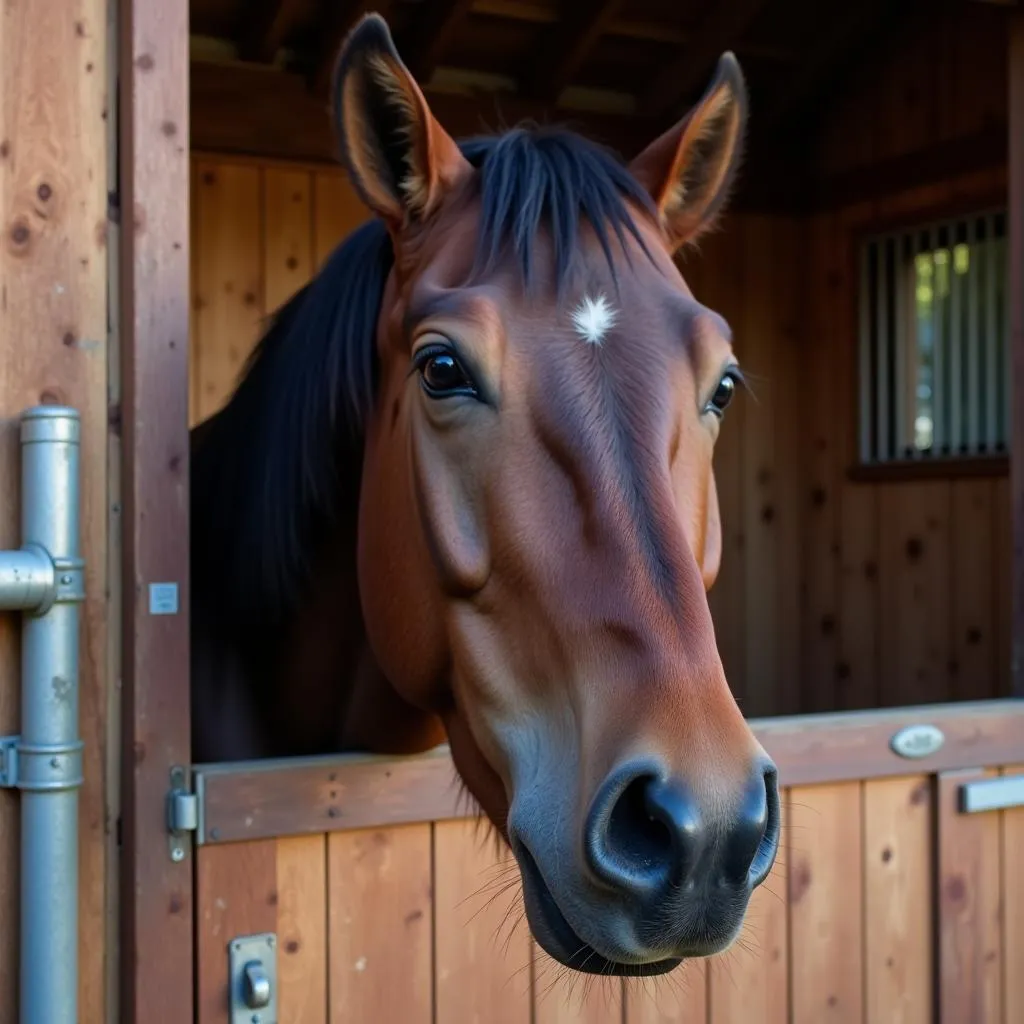Black Horse Candy is a popular treat for horses, but is it safe and healthy for your beloved equine friend? This article will provide you with a comprehensive guide on everything you need to know about black horse candy, from its origins and ingredients to its benefits and potential risks.
Understanding Black Horse Candy
Black horse candy, also known as molasses blocks, is a hard, dense treat made from molasses and other ingredients, such as grains, minerals, and vitamins. It’s designed to be a supplemental feed for horses, providing them with extra energy, essential nutrients, and a source of enjoyment.
The History of Black Horse Candy
The use of molasses as a horse feed dates back centuries. Molasses is a by-product of sugarcane and beet processing, and it has been used for its nutritional value and sweet taste. In the past, black horse candy was often made at home using molasses and other readily available ingredients. Today, it is commercially available in a variety of forms and flavors.
What are the Ingredients in Black Horse Candy?
The exact ingredients in black horse candy can vary depending on the brand and type. However, common ingredients include:
- Molasses: The primary ingredient, providing sweetness, energy, and some nutrients.
- Grains: Oats, corn, barley, and other grains are added for energy and protein.
- Minerals and vitamins: These are added to supplement the horse’s diet and support overall health.
- Other additives: Some black horse candies may contain additional ingredients like flavors, preservatives, or colorants.
Benefits of Black Horse Candy
Black horse candy can offer several benefits to horses:
- Energy boost: Molasses is a good source of readily available energy, making it ideal for horses that need an extra energy kick.
- Palatability: The sweet taste of molasses makes black horse candy highly palatable to horses, encouraging them to eat even if their appetite is low.
- Nutrient supplement: Black horse candy can provide additional vitamins, minerals, and other nutrients, especially if a horse’s diet is lacking in these essentials.
- Stress relief: Black horse candy can provide a pleasurable and soothing experience for horses, helping to reduce stress and anxiety.
Potential Risks of Black Horse Candy
While black horse candy can be beneficial, it is important to be aware of its potential risks:
- High sugar content: Black horse candy is high in sugar, which can lead to weight gain and dental issues in horses.
- Laminitis: In some horses, high sugar intake can trigger laminitis, a painful condition that affects the hooves.
- Colic: Feeding black horse candy in large quantities can upset a horse’s digestive system and increase the risk of colic.
- Choking: The dense nature of black horse candy can pose a choking hazard if not fed properly.
Expert Opinion: Dr. Emily Carter, Equine Veterinarian
“It’s important to remember that black horse candy should be considered a treat, not a staple of a horse’s diet. While it can provide some benefits, its high sugar content and potential risks should not be overlooked. Always feed black horse candy in moderation and consult with your veterinarian about the appropriate amount for your horse.”
Feeding Black Horse Candy Safely
To minimize risks and maximize the benefits of black horse candy, follow these guidelines:
- Feed in moderation: Only give black horse candy as a treat, not a daily feed.
- Choose a high-quality product: Opt for black horse candy from reputable brands that use high-quality ingredients and minimal additives.
- Monitor your horse’s weight: If your horse gains weight or shows signs of laminitis, reduce or eliminate black horse candy from their diet.
- Feed slowly and carefully: Break black horse candy into small pieces and feed it slowly to minimize the risk of choking.
- Consider alternatives: If you are concerned about the risks associated with black horse candy, there are other healthy treat options for your horse, such as apples, carrots, and hay cubes.
Is Black Horse Candy Right for Your Horse?
The decision of whether to feed black horse candy to your horse depends on several factors, including your horse’s health, diet, and individual needs. Always consult with your veterinarian to determine if black horse candy is appropriate for your horse.
FAQ
Q: What are the signs of laminitis?
A: Signs of laminitis can include lameness, heat in the hooves, reluctance to move, and a change in gait.
Q: How often should I feed my horse black horse candy?
A: It’s best to offer black horse candy as an occasional treat, not a daily feed.
Q: What are some healthy alternatives to black horse candy?
A: Apples, carrots, hay cubes, and small amounts of grain are good alternatives.
Q: What are some other brands of horse treats available?
A: Other popular brands include [Brand Name 1], [Brand Name 2], and [Brand Name 3].
Q: Where can I buy black horse candy?
A: Black horse candy is widely available at feed stores, tack shops, and online retailers.
To ensure the best care for your horse, always consult with your veterinarian about any dietary changes or supplement additions.
 Black Horse Candy for Horses in a Stable
Black Horse Candy for Horses in a Stable
Do you have any other questions about black horse candy or horse care in general?
Contact us today for expert advice and support for all your equine needs.
Justus Horses USA – Your Trusted Partner in Horse Care
Phone: 0772127271
Email: [email protected]
Address: QGM2+WX2, Vị Trung, Vị Thuỷ, Hậu Giang, Việt Nam.